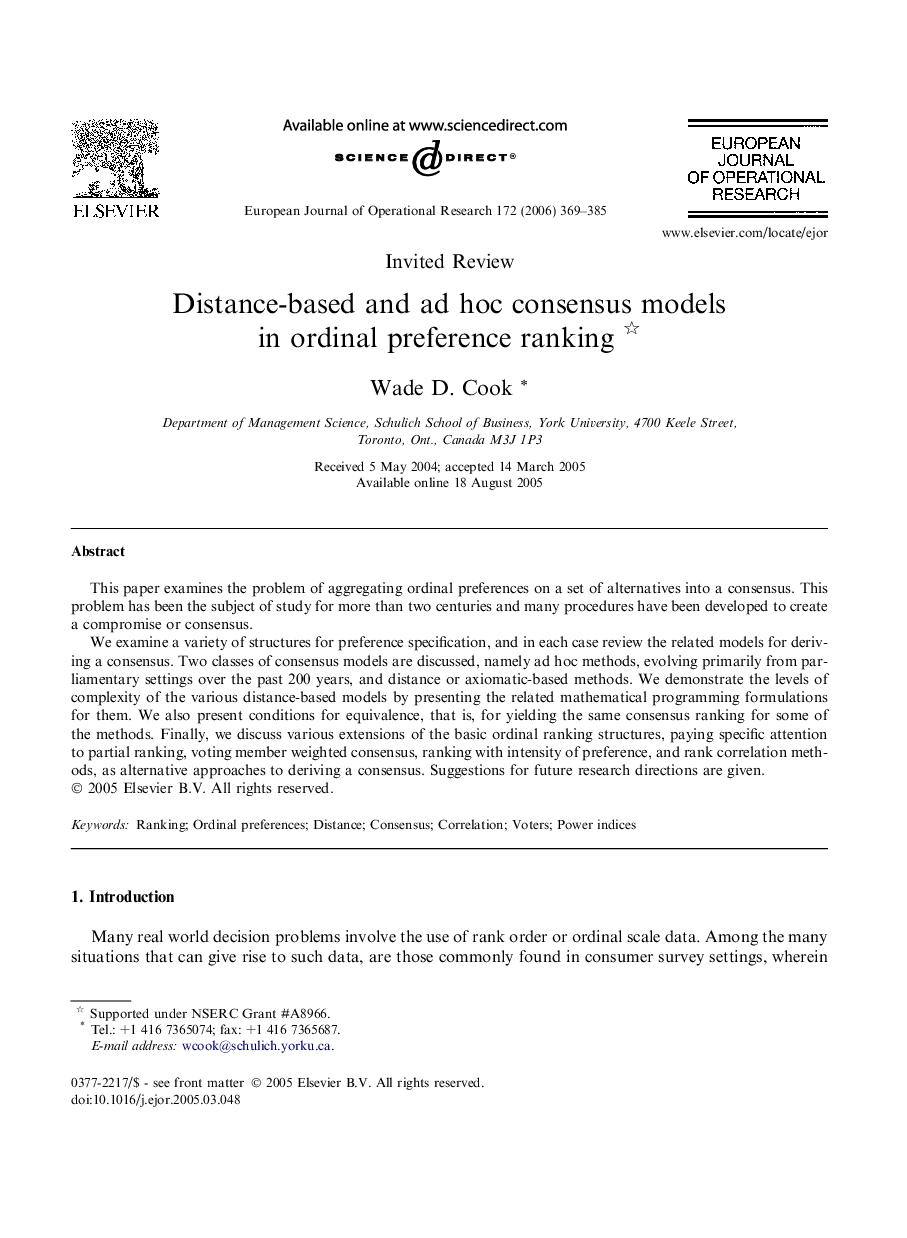| Article ID | Journal | Published Year | Pages | File Type |
|---|---|---|---|---|
| 477931 | European Journal of Operational Research | 2006 | 17 Pages |
This paper examines the problem of aggregating ordinal preferences on a set of alternatives into a consensus. This problem has been the subject of study for more than two centuries and many procedures have been developed to create a compromise or consensus.We examine a variety of structures for preference specification, and in each case review the related models for deriving a consensus. Two classes of consensus models are discussed, namely ad hoc methods, evolving primarily from parliamentary settings over the past 200 years, and distance or axiomatic-based methods. We demonstrate the levels of complexity of the various distance-based models by presenting the related mathematical programming formulations for them. We also present conditions for equivalence, that is, for yielding the same consensus ranking for some of the methods. Finally, we discuss various extensions of the basic ordinal ranking structures, paying specific attention to partial ranking, voting member weighted consensus, ranking with intensity of preference, and rank correlation methods, as alternative approaches to deriving a consensus. Suggestions for future research directions are given.
